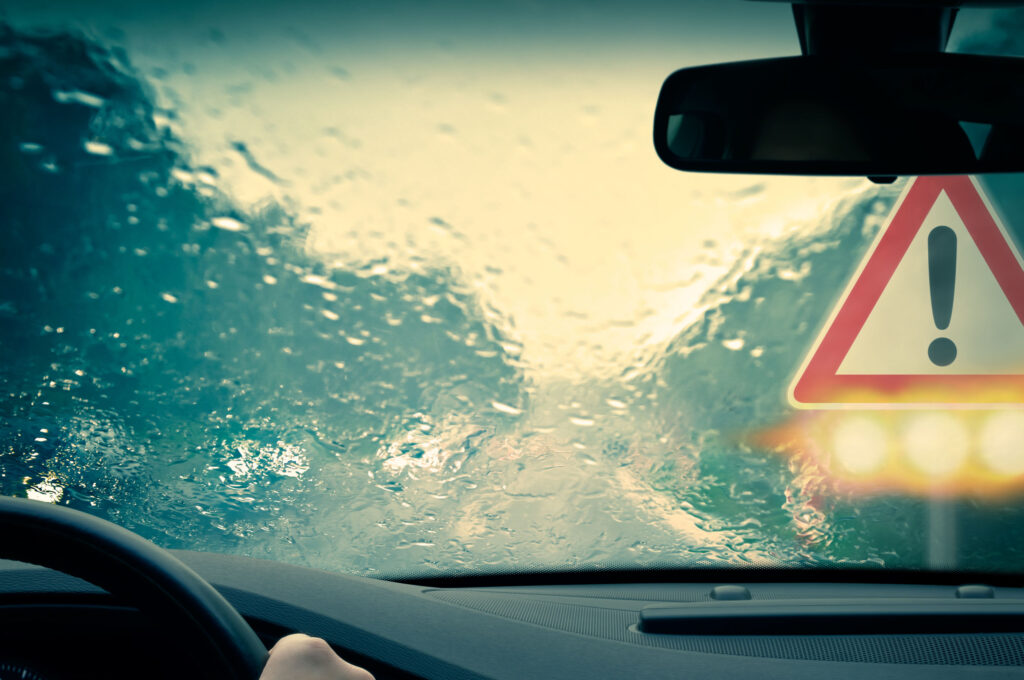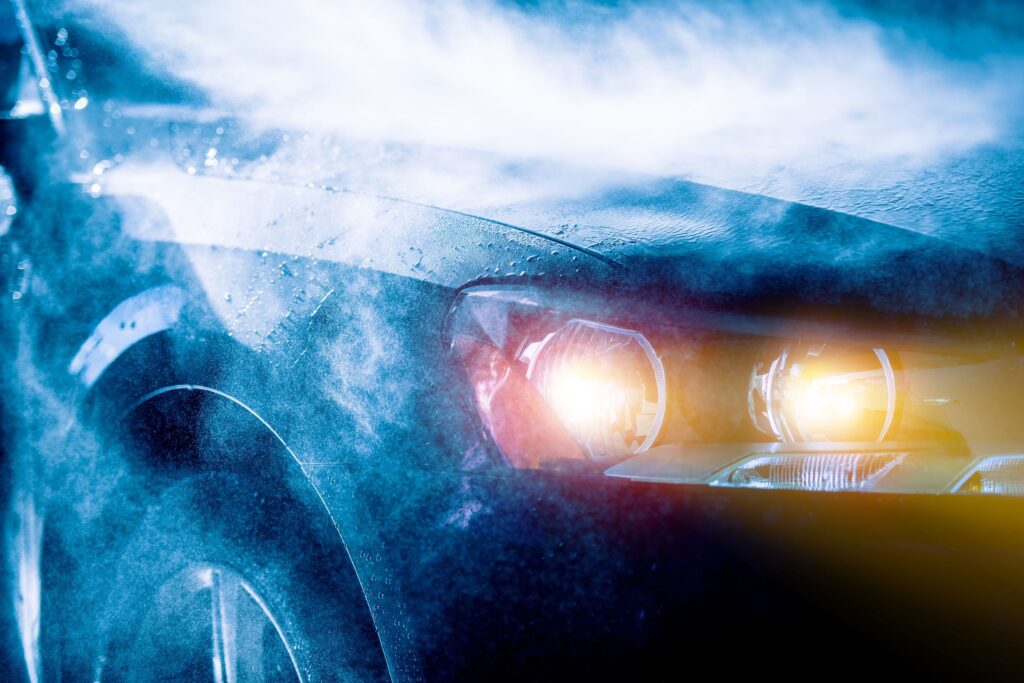
Life doesn’t stop for poor weather conditions. People still have to get up in the morning and drive to work or take the kids to school, rain or shine. Unfortunately in Tennessee, significant rainfall can lead to an increase in car accidents in addition to sudden and dangerous flash flooding. Protect yourself and prevent injury because of a Nashville car accident by following these eight safety tips for driving in the rain, brought to you by Lerner and Rowe Injury Attorneys.
Driving in the Rain in Nashville
Did you know that Nashville receives an average of 119 days of precipitation per year? That’s nearly one out of every three days! Driving is already a hazardous undertaking in Nashville, where there have been more than 260 traffic fatalities in 2019 alone. Never underestimate the power of mother nature, and always err on the side of caution on Tennessee roadways with these preventative rainy day tips.
Maintain Your Vehicle Year Round
Safe driving requires safe equipment. Worn-out tires, bad brakes, low tire pressure, and broken windshield wipers won’t do you any good when the rain hits.
- Invest in tires that have good treads.
Tire treads of less than 3/32” won’t grip the road properly and can create unsafe driving conditions. Optimal tire treads can be life-saving during inclement weather conditions, when roads may become slick with rain, oil, dirt, or ice. Also be sure to rotate your tires regularly; this ensures that their treads will wear out evenly.
- Regularly check your brakes.
Have your brakes serviced regularly by a licensed mechanic. If you notice any squeaking or that the time you need to slow or stop your vehicle has increased, take your car to be serviced right away.
- Replace windshield wipers regularly.
Poor quality wiper blades may not effectively clear your windshield and may even detach. Fresh wipers every six months or so will clear your windshield adequately and improve road visibility.
Always Use Your Headlights–It’s the Law!

Rainy days often impact visibility considerably. Combat this by using your headlights while driving in the rain, no matter the time of day. Not only will they help you see, but they will help other drivers see you.
It is also against the law in Tennessee to drive without the use of headlights during rain, mist, and other types of precipitation. Failure to turn on your headlights when appropriate could result in a Class C misdemeanor under Tenn. Code Ann. § 55-9-406.
Focus on the Road
Many drivers tend to slip into autopilot when they get behind the wheel. Avoid zoning out, and stay focused, present, and alert to avoid road hazards, which may be more frequent during inclement weather.
Daydreaming or zoning out can be a form of distracted driving and can make driving in the rain especially dangerous. You may miss an unexpected tree branch or other debris that are washed onto the roadway.
Leave Early & Expect Delays
Always leave early to get to your destination on time when it’s raining. Even light rainfall can sometimes cause significant delays. Other smart drivers will be slowing down, and those who don’t often end up involved in a Nashville car accident. By planning ahead, you reduce the pressure to speed through potentially dangerous road conditions to get to work on time.
Slow Down to Avoid Hydroplaning
Hydroplaning occurs when you lose control of your vehicle due to water beneath your tires. You can prevent hydroplaning by decreasing your speed while driving in the rain. Even if the road doesn’t look particularly wet, slick spots can cause a single or multi-vehicle Nashville car accident within seconds.
If your vehicle begins to hydroplane unexpectedly, remain calm. Ease off the gas, and gently attempt to steer in the direction you want to go while also gently depressing the brakes. Avoid the temptation to slam on your brakes or jerk the steering wheel too quickly, which can cause your vehicle to spin out. Turn off cruise control if you are driving in the rain, which can make it more difficult to regain control after hydroplaning.
Stay Clear of Large Vehicles
Buses, semis, and other large vehicles can all pose a threat during bad weather conditions. Their larger blind spots decrease their visibility on a good day, let alone while driving in the rain. These types of vehicles also require much longer to stop than passenger vehicles.
To safely share the road with large vehicles, keep your distance if possible and try to avoid their blind spots. Most importantly, never merge unexpectedly or directly in front of buses or semi-trucks.
Drive Defensively
Defensive driving techniques can help you avoid a Nashville car accident, no matter the weather conditions. Focus on these tips for driving in the rain.
- Start braking sooner.
Slick surfaces may require a longer distance for you to reach a full stop.
- Don’t tailgate.
In bad conditions, other vehicles are more likely to spin out or hydroplane. Avoid rear-ending another driver by allowing plenty of room between you and the car in front of you.

- Merge carefully.
Especially in front of larger vehicles, use your turn signals and give those around you time to slow down.
- Be patient.
If visibility drops, pull over or exit the roadway. Wait for the worst of the storm to pass, and only re-enter the roadway if it is safe to do so.
Don’t Enter Flood Waters
Large amounts of rainfall in a short time period can cause puddles, washouts, and even flash floods. The number of people killed by floods has risen to an average of 100 people annually across the country since 2015. Tennessee is among the top ten states in the country by number of flood disasters, so Nashville motorists should be especially aware of flood safety practices.
- Drive in or near the center lane when possible.
Puddles are more likely to accumulate or pool near sidewalks and gutters.
- Turn around, don’t drown.
If you cannot tell how deep a puddle or flooded street is, don’t attempt to drive through it. You should especially avoid visibly moving flood waters, which can carry your vehicle away. Remember, it only takes six inches of water to stall most vehicles and just a foot to float many.
- Avoid streams, drainage channels, canyons and other areas which may be prone to flooding.
- Exit your vehicle if you are caught in flood waters, but only if it is possible to do so safely. Keep in mind that even a half a foot of rushing water is enough to cause you lose your footing.
Just because the rain has stopped doesn’t mean the coast is clear. Always stay up to date on your local weather alerts, including flood watches and warnings.
After a Nashville Car Accident, Call Lerner and Rowe Injury Attorneys
At Lerner and Rowe Injury Attorneys, we handle all kinds of accident cases, including car and semi-truck accidents. Our caring legal team will provide answers to any questions you may have about the different aspects of your personal injury case.
When you contact us, you can feel confident that our knowledgeable Nashville car accident attorneys will support you every step of the way. For a free consultation, reach out to us by phone at 615-333-8888, take advantage of our LiveChat feature, or submit a free case review from the comfort of your home.



